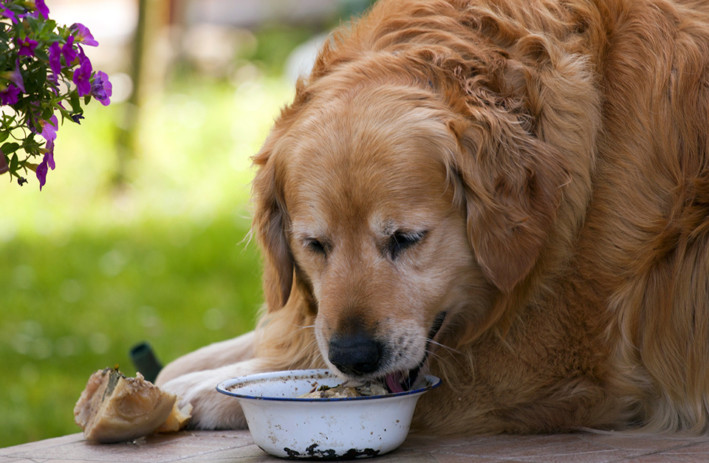The ultimate guide to hunger in dogs
There’s no denying it: all dogs love to eat – and a lot of the time they’re not fussy about what goes into their mouths. There’s nothing like seeing your dog’s tail wag excitedly when dinnertime rolls around, or the way he digs into a plate of biscuits like it’s the best-tasting thing in the world. But even after a hearty meal, a lot of dogs don’t seem satisfied, prompting their owners to wonder whether or not they’re giving their pups enough to eat. By worrying that our dogs are still hungry, a lot of the time we end up overfeeding them.
Here are reasons why your dog might seem hungry when he’s already had enough to eat and how to deal with them:
It’s just a part of his natural biology
The truth is that dogs and humans have very different attitudes to food. Unlike most humans, dogs will eat regardless of being hungry or not because it’s a part of their biological makeup, according to scientists. This goes back to the days of their wolf ancestors, who didn’t have humans to lovingly present them a meal at the same time every day. When wolves found food, they ate as much as they could, whenever they could, in order to stock up. This was necessary because they didn’t know when they would get their next meal –sometimes it would take days for them to find food again. It was a case of survival of the fittest: the dog that could store the most food would survive best through times of hunger. This explains why your dog has such strong instincts to eat and eat and eat.
Check that you’re feeding your dog adequate food. Often, dog food is manufactured to have high calories in small servings. You can try and feed him a bigger serving of food, which contains fewer calories, for example, by adding green vegetables to his meal. Consult your vet to find out what he should be eating, as all dogs require different quantities of food based on a variety of factors. Also, limit the amount of dog treats he is eating, as these are high in calories and low in nutritional value.
He’s just learned to beg
The truth is, dogs are excellent beggars and really know how to twist our heartstrings into giving them that extra piece of food …I mean, they did invent ‘the puppy dog look’ after all. They’re smart enough to work out that if they continually beg a human enough, the human will eventually cave in and give you a bit of extra food. And sadly, the more you give your dog each time he begs you, the more he will come to expect from you next time he begs. This can cause a circle of bad behaviour, leading to many issues, from loitering next to you while you’re having a snack to from jumping up on the dinner table while you have guests over. It can be seriously annoying and uncomfortable for you, strangers and visitors when your dog begs.
Here are some ways to avoid begging:
- From now on, never give him food when he begs. Make sure the rest of the family is on board too.
- Don’t pat him, or pay any attention to your dog while you’re eating or dealing with food.
- Never feed him out of your palm, instead, place any food you give him directly into his bowl.
He could be suffering from a medical issue
While most dogs just enjoy chomping down on food, sometimes a dog having insatiable hunger can be a sign of one of the following underlying medical conditions:
- Cushing’s Disease – this condition causes increased hunger to due to a hormonal problem.
- Malabsorbtion – this disease stops the body from absorbing nutrients from food, letting off feelings of hunger in attempt to re-gain the deprived nutrients.
- Diabetes – when a dog’s body isn’t producing insulin, his cells begin to communicate feelings of hunger in attempt to find some insulin.
- Hyperthyroidism – where an overactive thyroid stimulates hunger and even weight loss.
Don’t fret: most of the time, a dog with a big appetite is a sign of health, not sickness. However, if you do notice changes in your dog’s appetite or you are concerned about any of these conditions, see your vet for a thorough test.
What are the dangers of obesity in dogs?
When dogs are overweight, it puts a strain on almost all the organs inside a dog’s body their body. This can cause damage to ligaments, joints and bones, difficulty breathing, stomach issues, liver problems, heart disease and even cancer.









